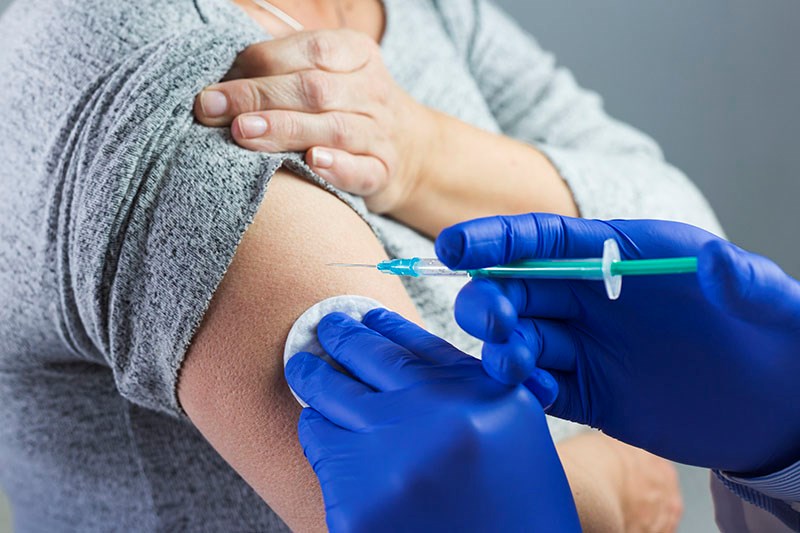Manitoba announced Oct. 18 that it is now recommending third doses of COVID-19 vaccine for First Nations people living on reserve due to more fully vaccinated people developing breakthrough infections.
About 7,200 First Nations citizens on reserve are currently eligible for booster shots, which must come at least six months after the received their second dose (April 18 or earlier as of Thursday).
Dr. Marcia Anderson of the First Nations Pandemic Co-ordination Team said during a news conference that more than 30 per cent of breakthrough infections in Manitoba are occur-ring among First Nations and that about two-thirds of them are occurring in people who usually reside on reserve. Third doses are not yet being recommended for First Nations people living off-reserve, in part because few of them would be eligible right now.
Anderson estimated around 30 per cent of cases on reserve are in children 11 and under who are not yet eligible to be vaccinated and said the test positivity rate on First Nations is about 10 per cent – three times higher than it is for the province as a whole. The risk of developing a COVID-19 infection is still 10 times higher for unvaccinated people, she said
“First Nations people are disproportionally impacted by COVID-19,” she said. “The fourth wave is no different.”
A higher proportion of current COVID-19 infections among on-reserve residents are occurring in the province’s north.
First Nations are also seeing more severe outcomes among fully vaccinated people who develop breakthrough infections, including more hospitalizations, but such outcomes are still about 38 times more likely to affect unvaccinated people.
It is unclear how much of the increase in infections of fully vaccinated people is due to waning effectiveness of COVID-19 vaccines compared to other factors, such as overcrowded and poorly ventilated homes and larger class sizes on First nations.
People who decide to receive a third shot will probably get the same vaccine they had for their first two, which is largely Moderna among First Nations people living on-reserve.
“Supply isn’t really an issue with either product [Moderena or Pfizer],” said Manitoba chief public health officer Dr. Brent Roussin.



